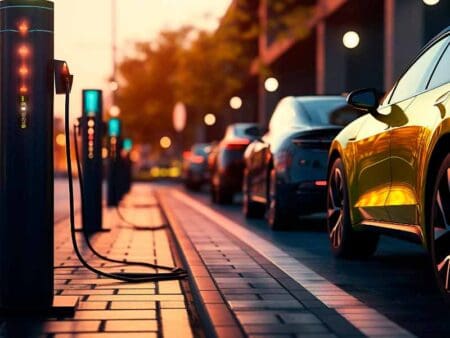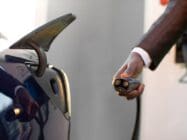
Global motor companies BMW Group, Ford Motor Company and American Honda Motor Co., Inc. have unveiled a partnership to establish ChargeScape, an equally-owned venture aiming to bridge the gap between electric utilities, automakers and electric vehicle (EV) customers.
The company will operate for consumers in the US and Canada, aiming to unlock the potential offered by EVs for the electric power grid.
According to the partners in a press release, ChargeScape’s platform is designed to enable EVs to interact with the electric grid in ways that were not possible with traditional gasoline-powered vehicles.
This includes managed charging and energy-sharing services that can provide financial benefits to EV owners. Specifically, ChargeScape’s platform intends to eliminate the need for individual integrations between automakers and electric utilities.
The platform will also provide utilities access to the energy stored in a large number of EV batteries. EV owners will then have the opportunity to earn financial incentives by charging their vehicles during times that are advantageous for the grid, thanks to flexible scheduling.
In the future, the platform will enable EV owners to contribute to grid stability during peak demand through vehicle-to-grid (V2G) applications.
Vehicle-to-grid communications
ChargeScape is expected to enhance the efficient use of EV batteries by providing energy data to electric utilities and system operators, including aggregated demand response, aligning charging with off-peak hours and promoting the use of renewable energy sources.
According to the partners, the establishment of ChargeScape aligns with the increasing adoption of EVs, which presents challenges to the electric grid due to higher electricity demand for charging.
The platform thus aims to provide energy management services to help support grid resiliency while looking to the future of V2G capabilities that will benefit both EV customers and electric utilities.
Moreover, ChargeScape aims to contribute to decarbonising the grid; the company’s efforts aims to reduce EV customers’ personal carbon footprints by utilising electricity that comes from more readily available renewable energy sources, such as wind or solar.
Have you read:
India to get its first V2G system
Self-consumption V2G system launched for Chinese national park
E-mobility deployment and its impact on European transmission and distribution grids
“Electric grid reliability and sustainability are the foundation for an EV-powered future,” said Thomas Ruemenapp, vice president of engineering, BMW of North America.
“ChargeScape aims to accelerate the expansion of smart charging and vehicle-to-everything solutions all over the country, while increasing customer benefits, supporting the stability of the grid and helping to maximise renewable energy usage.”
Added Jay Joseph, vice president of sustainability & business development for American Honda Motor: “With automakers accelerating toward the electrified future, we must find solutions like ChargeScape that enable all stakeholders to work together for the good of our customers, society and our industry by enabling greater use of renewable energy for and from mobility.”
The collaboration builds on the Open Vehicle Grid Integration Platform (OVGIP), which provides a unified interface using communication protocols where all the components of the VGI (vehicle-grid integration) system can interact for managed EV charging.
ChargeScape, along with the work done to date with OVGIP, is expected to bring managed charging benefits to a wider range of EV owners. It will also reduce marketing and outreach costs for utilities seeking to connect with EV owners in their service areas.
BMW Group, Ford Motor Company and American Honda have direct, multi-channel communication with their EV customers through the platform, solving a central problem for utilities, they state, who typically do not have an easy way to identify the EV customers in their service territory.
The formation of ChargeScape is contingent on regulatory approvals and is expected to become operational in the near future.








